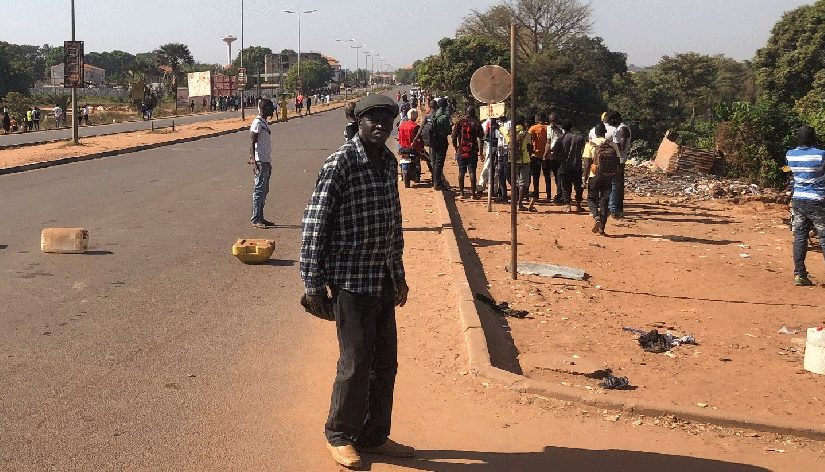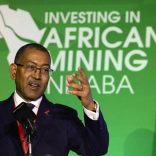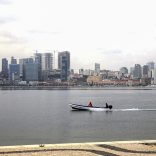Angola plans first output at Cabinda oil refinery by year-end
Guinea-Bissau: Coup or terrorist attack? – analyst asks

File photo: Lusa
Guinean analyst Rui Jorge Semedo asked on Thursday whether the attack on the Government Palace on Tuesday was an attempted coup d’état or a terrorist attack stressing that the events have not yet been clarified.
“Unfortunately, we are still confused because the government and the presidency have not been able to clarify what happened. If it was an attempted coup d’état or if it was a terrorist attack,” Rui Jorge Semedo told Lusa.
Armed men attacked the Guinea-Bissau Government Palace on Tuesday, where a cabinet meeting was taking place, attended by President Umaro Sissoco Embaló and Prime Minister Nuno Nabiam.
The analyst explained that the president and the government linked the act to people under investigation related to drug trafficking. The government stressed that the people who carried out the attack supposedly had funding from abroad to mobilise the logistics and weaponry.
“In those communications, they never clarified the participation of military personnel. They mentioned that half a dozen people were linked to the defence and security forces, but they did not say the armed forces were involved in this act,” he said.
For Rui Jorge Semedo, this is where the doubt lies.
“Whether it is an attempted coup d’état or an attack. Since the official communications lead that way, now only a serious and credible investigation can dispel the doubts and present the reality of the facts,” he stressed.
The analyst said that people have the right to be informed.
“The state of Guinea-Bissau, particularly the presidency and the government, owes society an explanation for the death of good Guineans and for what reason? We don’t know,” said Semedo.
The analyst recalled that this is a democracy and that access to information is one of the pillars of democracy.
“We do not have information, and the information we receive from the national authorities is not credible,” he said.
Stressing that he did not want to question the attack, the analyst said that there are details that so far no one has explained, namely who the ringleaders were, which barracks were involved, who led the process, who have been arrested and supposedly accused of being behind the events.
“These details help clarify the situation and give certain veracity to what is happening. So, in the absence of these facts, we are left confused by the confusion and left with doubts as to whether what they are saying is true or not. So we hope that in the coming days, we will have more credible information,” he said.
The analyst also considered the attack a “wake-up call to all political actors, at least those in power”.
“They should let democracy work,” he said, stressing that if democracy works, situations of this kind can be avoided.
For Rui Jorge Semedo, “oppression and repression lead the democratic process, and it is a methodology that invites the military to participate in the democratic game”.
The analyst also recalled that although the guns have been silent for almost ten years, “it does not mean that the country did not live in a moment of tension”, which he considered increased from 2019 and intensified in recent months.
According to the government’s latest assessment, the attack caused at least 11 deaths, and the president considered it to be an attempted coup d’état that could also be linked to “people related to drug trafficking”.
The General Staff of the Guinean Armed Forces has launched an operation to gather further evidence of the attack, condemned by the international community.
Guinea-Bissau is one of the poorest countries in the world, with about two-thirds of its 1.8 million inhabitants living on less than a dollar a day, according to the UN.
Since the unilateral declaration of its independence from Portugal in 1973, it has suffered four coups d’état and several other attempts that have affected its development.












Leave a Reply
Be the First to Comment!
You must be logged in to post a comment.
You must be logged in to post a comment.